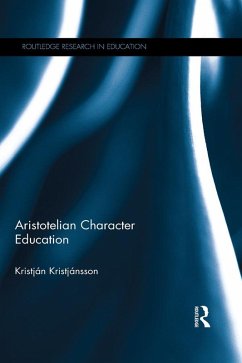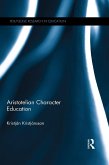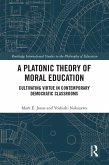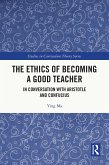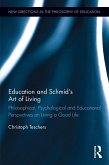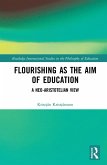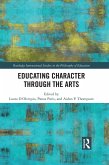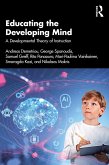After discussing and debunking popular myths about Aristotelian character education, subsequent chapters focus on the practical ramifications and methodologies of character education. These include measuring virtue and morality, asking whether Aristotelian character education can salvage the effects of bad upbringing, and considering implications for teacher training and classroom practice. The book rejuvenates time-honoured principles of the development of virtues in young people, at a time when 'character' features prominently in educational agendas and parental concerns over school education systems.
Offering an interdisciplinary perspective which draws from the disciplines of education, psychology, philosophy and sociology, this book will appeal to researchers, academics and students wanting a greater insight into character education.
Dieser Download kann aus rechtlichen Gründen nur mit Rechnungsadresse in A, B, BG, CY, CZ, D, DK, EW, E, FIN, F, GR, HR, H, IRL, I, LT, L, LR, M, NL, PL, P, R, S, SLO, SK ausgeliefert werden.
"This highly informative and rigorous book gives the best available explanation of the importance and significance of Aristotelian character education, reminding readers that performance is not enough if it is not underpinned by moral virtue and providing a desirable social vision of flourishing individuals in a flourishing society." - SciMedNet
"Overall, Aristotelian Character Education answers many questions, rebuts many objections, and clarifies the strengths, weaknesses, and remaining challenges for ACE. It is an exceptionally useful, cross-disciplinary resource." - Howard J. Curzer, The Philosophical Quarterly
"It is difficult to find fault with Aristolian Character Education by Kristjan Kristjansson. In eight engagingly written and thoroughly researched chapters, he introduces the reader to Aristotelian character education, defends it against critics and develops a contemporary version in the spirit, if not always the letter, of Aristotle's virtue theory." - Nancy E. Snow, The University of Oklahoma, British Journal of Educational Studies

